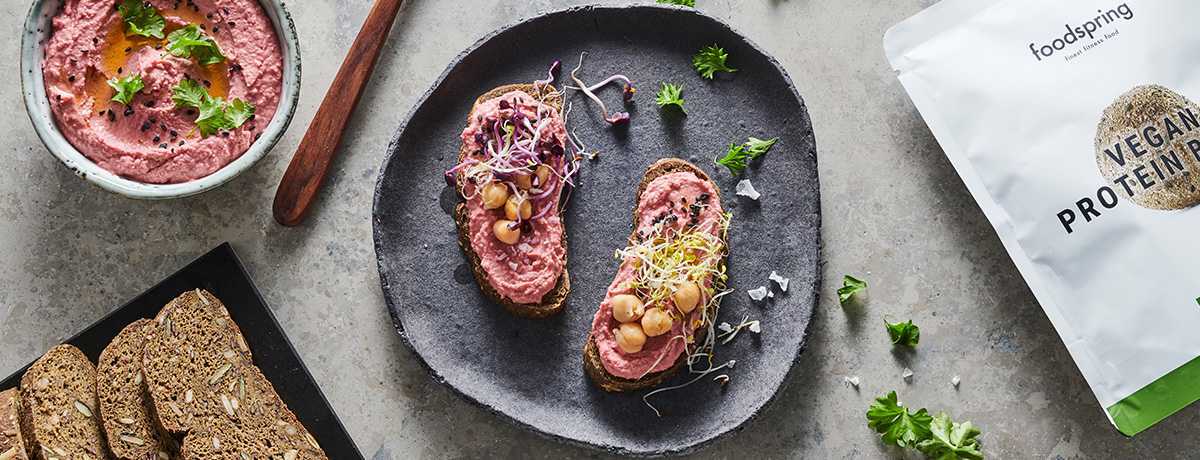Intuitive Eating: What It Is and How You Can Do It
 ©westwend61
©westwend61
Counting calories and macros is a thing of the past! Here, we explain how, with intuitive eating, you can feel great and eat healthy when you want and how you want.
What is intuitive eating?
Intuitive eating is basically eating what you like, when you like. That might sound too good to be true, but there’s a little more to it.
The concept of intuitive eating was created in 1995 by nutritionists Evelyn Tribole and Elyse Resch, and it focuses on the deep connection between body and mind.
Intuitive eating is the complete opposite of a diet. There’s no meal planning or restrictions involved, and, usually, no feelings of guilt either.
It’s a method that’s all about your well-being first. Feeling guilty for eating something you love is an absolute no-no.
It’s a return to basics. Instead of eating when you think you’re supposed to, focus on eating when you’re actually hungry and stopping when you’re full.
This sounds easy in theory, but in practice our busy lives can often get in the way of our intuitive eating efforts. It’s important to try to listen to what your body is telling you it needs rather than your mind. Think of how babies only eat when they’re truly hungry, not just because they’re bored and feel like snacking.
Learn to eat with intuition
You’ve probably been told time and time again to “finish your plate,” in order to not waste food. And you might be used to sitting down to lunch or dinner at a specific time every day, even if you’re not necessarily hungry when it comes around.
Intuitive eating urges you to break all these rules in favor of what makes you feel best. To get the most out of it, though, it’s important to be as in touch with your needs and desires as possible. It’s a slow process that involves changing certain eating habits and establishing positive thought processes.
Use these 10 principles to start incorporating intuitive eating into your lifestyle.
1. Change your perspective on diet culture
Though you’ve probably realized from personal experience, most studies show that diets don’t work in the long-term. From the yo-yo effect and weight gain to bad feelings of guilt and cravings, the list of the undesirable effects of dieting goes on and on.
If you want to feel good in your skin all the time and not only after you’ve spent weeks essentially starving yourself, say goodbye to fad diets and food restrictions and enjoy everything you love instead.
2. Honor your hunger
Hunger isn’t your enemy. It’s a natural mechanism that your body uses to remind you to consume the nutrients it needs to function properly throughout the day.
Intuitive eating isn’t possible unless you’re willing to listen to your needs: When you feel hungry, take a beat to discover if you’re actually hungry, or just bored and looking for something to munch on. If you’re sure you’re hungry, eat! It doesn’t matter if you ate just an hour before. If your body is telling you that it’s hungry, listen to it and give it what it needs.
A rumbling stomach isn’t the only sign of hunger. Hunger can present itself differently from person to person, causing some to feel fatigued and others to think incessantly about eating.
3. Don’t think of food as your enemy
To have success with intuitive eating, it’s important to stop categorizing what you food into “good” and “bad” categories. There’s no such thing as bad food but if you think there is you will feel bad after eating it. Allowing yourself to enjoy whatever you want without guilt will improve your overall relationship with food. Just be aware of how you feel while you’re eating. If you’re not sure how to do that, try asking yourself the following questions:
- Does my food taste good?
- Did it fill me up?
- How does my body feel now?
4. Stop policing yourself
Make peace with food and silence the little voice in your head telling you that what you’re eating isn’t healthy. The important thing is you’re feeling good and enjoying every bite of your food.
5. Listen to your appetite.
There’s a small but crucial difference between hunger and appetite but it’s important to pay attention to when you’re eating intuitively. When you’re done eating something, you should feel contentedly full—not like your stomach isn’t going to pop but like you maybe could eat another bite but don’t need to.
Of course, sometimes what we’re eating is just so good, it’s hard to stop even when you’re no longer hungry (hello, ice cream!). This is where listening to your needs is essential, because it will help you determine whether you actually need more food or not, so that you don’t wind up eating too much and putting yourself in a food coma.
If your tummy is rumbling and you feel like a snack, our Protein Bread will fill you up thanks to its high content of plant-based protein and fiber. Our chocolate-coconut yogurt recipe is also an excellent option for a quick and nourishing snack.

6. Ensure your own well being
Eating isn’t just about filling up your stomach. It’s also about pleasure. Ask yourself if your meals are making you happy, and, if not, take a look for some new recipes (we’ve got a lot of great recipes for you to choose from!) that will satisfy both your hunger and cravings and bring you a bit of joy.
7. No emotional eating
When you’re feeling sad or angry, emotional eating isn’t always the best answer. Intuitive eating promotes eating according to how hungry you are, not how emotional you are. There are plenty of other activities that are better suited to helping you relax and feel better when you’re down. Drawing, writing, working out — do whatever usually works for you to take the focus off of your desire for food.

8. Accept yourself as you are
Learn to love yourself and your body. You are not defined by your waist size.
9. Exercise
Exercise isn’t just useful for burning calories or losing weight. It can also make you feel better about yourself. Try focusing on feeling good when you work out, not on the amount of calories you think you need to burn. And if you don’t know what kind of exercise to do, have a look at our free foodspring workouts. There’s something for every level, no matter how much or little time you have.

10. Put your health first
The point of intuitive eating is to make you feel healthy. In general, it’s best to try to eat a balance of nutritious food and what you crave. Nothing that you consume is going to kill you overnight, but if you enjoy donuts day in and day out, odds are you’re going to start to feel a little lethargic.
Focus on eating what most promotes your well-being — and yes, that should include the occasional ice cream and burger!
Why is intuitive eating hard to do?
“No dessert until you’ve eaten every bite of your dinner.” We’ve all heard that one before. Maybe we’ve even found ourselves saying it to our own kids.
You’re used to eating at specific times of day, eating the recommended portion sizes, and you’ve spent more time and energy than you’d care to share trying to find the perfect nutrition plan to hit your goals.
When it’s time for a reward, you treat yourself with a scoop of ice cream, and when you haven’t lived up to a goal, you cut back your dinner to the bare minimum to reduce your enjoyment.
Food rules confront us in nearly every situation imaginable — whether we recognize it or not.
Intuitive eating means taking a step back from all these rules. Turn off your head and listen to your body.
Going from noticing you’re having these thoughts and placing values on specific foods, and then turning away from these thoughts and feelings, is a long-term process.
How do you combine intuitive eating with fitness goals?
Knowing how to eat intuitively is something that may take a long time to establish.
Eating whatever you want may not seem like a viable way to weight loss. But giving yourself permission to eat what you want and trusting your gut (literally!) is the best way to ensure you form habits that make you happy and healthy. And after a while, it’ll become intuitive to you!

Knowing how to recognize your body’s signals is key to avoiding all the common traps we mentioned above. The yo-yo effect and cravings will go away because you’ll learn how to control your appetite over time. The more you practice intuitive eating the more you’ll know exactly what quantity of food you need to eat to feel good.
There is one small caveat: For weight loss, you need to eat fewer calories.
If losing weight is a goal for you, our free Body Check can help you out. When you sign up you’ll receive free nutritional advice and product recommendations tailored to your profile and fitness goals. And you’ll also get access to important information like your BMI and the amount of calories you need to cut to see results.
At the end of the day, we think that better understanding your body’s needs and regularly taking pleasure from your food can only be a good thing.
Don’t forbid yourself from eating anything, because frustration may get in the way of your goal. Reevaluate what it means to you to have a “dream body.” You are beautiful as you are, no matter what size, and intuitive eating is a great way to embrace what you already have.
So enjoy your cake, ice cream, and candy whenever you feel like it. Or, try our Coconut Protein Cream for an extra creamy dessert.

Our conclusion
- Intuitive eating has no rules and rejects food guilt.
- Eat intuitively and reject the diet mentality.
- Fancy a sweet treat? Allow yourself this pleasure without second thoughts.
- The less forbidden, the better. Give yourself unconditional permission to eat what you want.
- Your diet will naturally balance itself over time.
- Never forget to savor your food.
Sources for this article
We at foodspring use only high-quality sources, including peer-reviewed studies, to support the facts within our articles. Read our editorial policy to learn more about how we fact-check and keep our content accurate, reliable, and trustworthy.
- Resch, E.; Tribole, E. (2013): Intuitiv abnehmen. Zurück zu natürlichem Essverhalten. Goldmann Verlag.






























